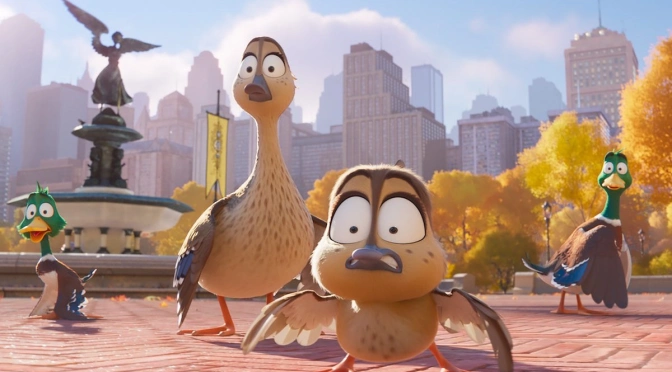If any film is going to make an easy $1 billion at the box office in 2024, it’s going to be Exodus 4, the latest of Illumination Entertainment’s six blockbusters. The little guy can make money. Make a lot of money, make a lot of money, make a lot of money. But first up is an even rarer film. The Immigrant, Illumination Entertainment’s first original film in eight years, sweeps across the screen against a backdrop of a series of sequels, remakes and video game adaptations. Visually, the film is a delight. Directed by French cartoonist Benjamin Renner, The Great Migration is Illumination’s cheapest but brightest animated film in a decade. By all other accounts, it’s a tiresome masterpiece.
This is no exaggeration. The complete lack of originality and imagination in White Lotus creator Mike White’s script is shocking in itself. Danny DeVito is in no shape to even add life to the dull dialogue and clunky pacing. He voices his crazy uncle Dan – “Wake me up when it’s my turn to get eaten” – who is a lazy green-headed duck with little input. DeVito doesn’t spend more than a day on the set. In addition, Kumail Nanjiani plays Mike Mallard, the anxious father of Dax (Casper Jennings) and Gwen (Tracy Gazzale) and husband of the long-suffering Pam. Carol Kane voices the Great Blue Heron, Awkwafina voices the gangster Dove, and David Mitchell voices GooGoo, an American yoga enthusiast in Beijing. There’s a wealth of talent here.
When a flock of migrating ducks stops by the pond at the Mallard’s house in New England, Pam and the kids start talking about winter in Jamaica. Mike isn’t too interested, but tradition, not reality, demands that he change his mind in five minutes. The family flew south and suffered a fiasco at a New York restaurant specialising in roast duck. They have to put a Jamaican macaw (Keegan-Michael Kay) in jail and deal with a heinous villain. Jason Marin voices the physically grotesque villain, who is referred to in the film only as “Chef.”
These are all things we’re very familiar with. Finding Nemo is an obvious reference point, but there are also shades of Ratatouille and the 20th-century Fox cartoon Rio Adventure. These days, Pixar may not be as reliable as the makers of those endless icy classics, but at least they won’t be accused of just parodying a passing catalogue. As if the clichéd family dynamics weren’t enough, a small gang, a predator that may not be as deadly as its reputation, and a fake paradise are all present. Everything is arranged in situational roll call without any sense of cohesive narrative flow
However, the film is truly beautiful. The two-dimensional prologue is reminiscent of Renner’s comic book origins, and his artistic leanings run through the standard Illumination style. This isn’t so much evident in the birds – they’re all very Lovecraftian – as it is in the stunning world around them. Highlights of the film include a montage of swooping maiden flights, an out-of-control crash into Manhattan, and any number of scenes in lush Central Park in autumn. Nonetheless, you know something’s not quite right when you spend more time admiring the technical details and backgrounds than the narrative itself.
